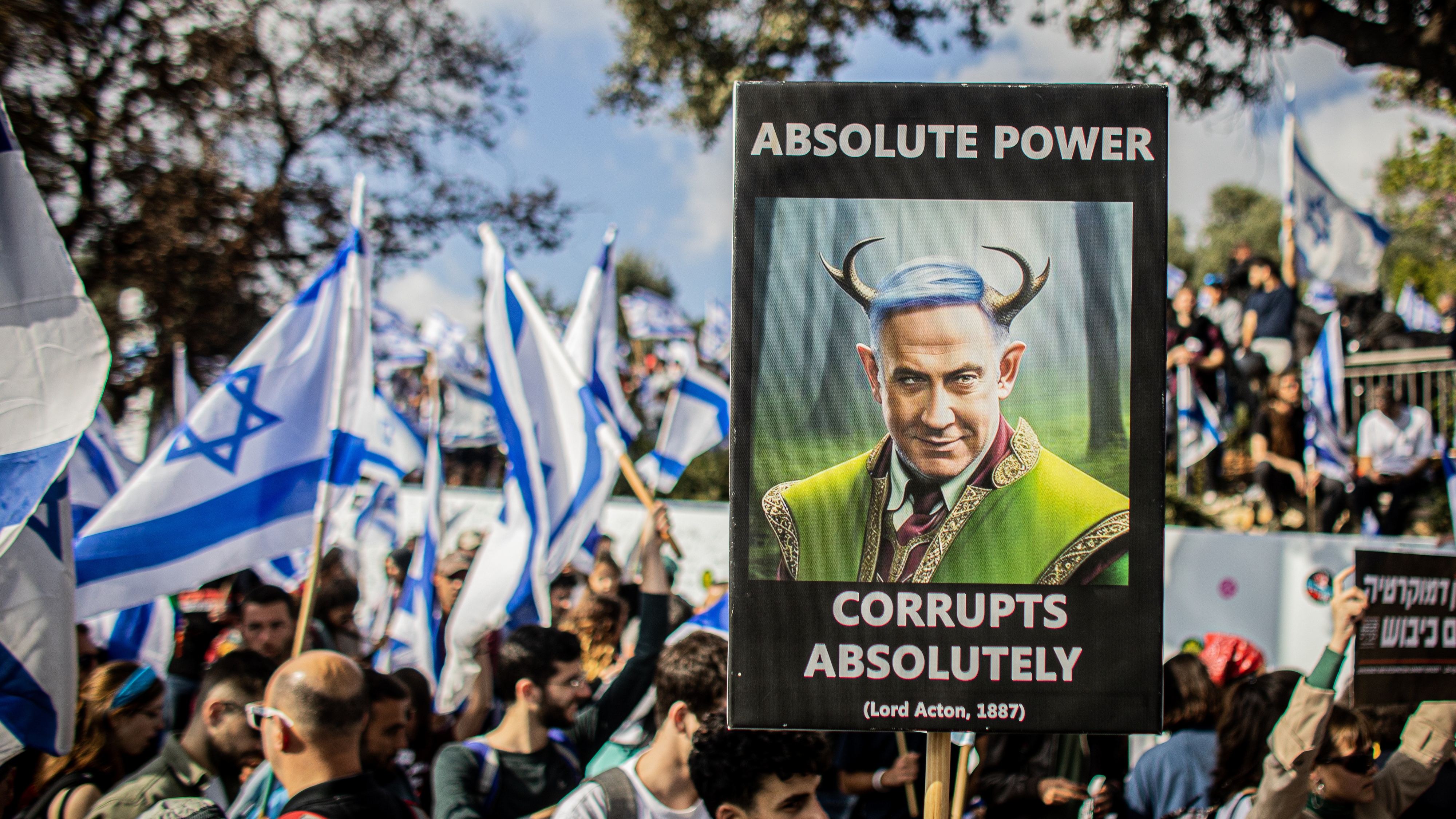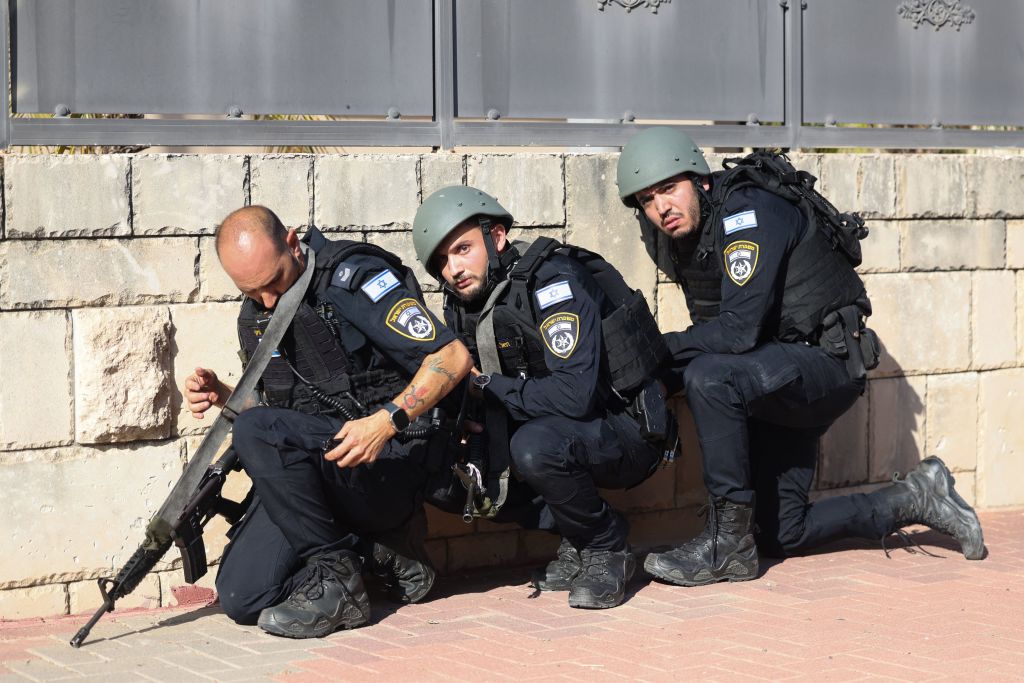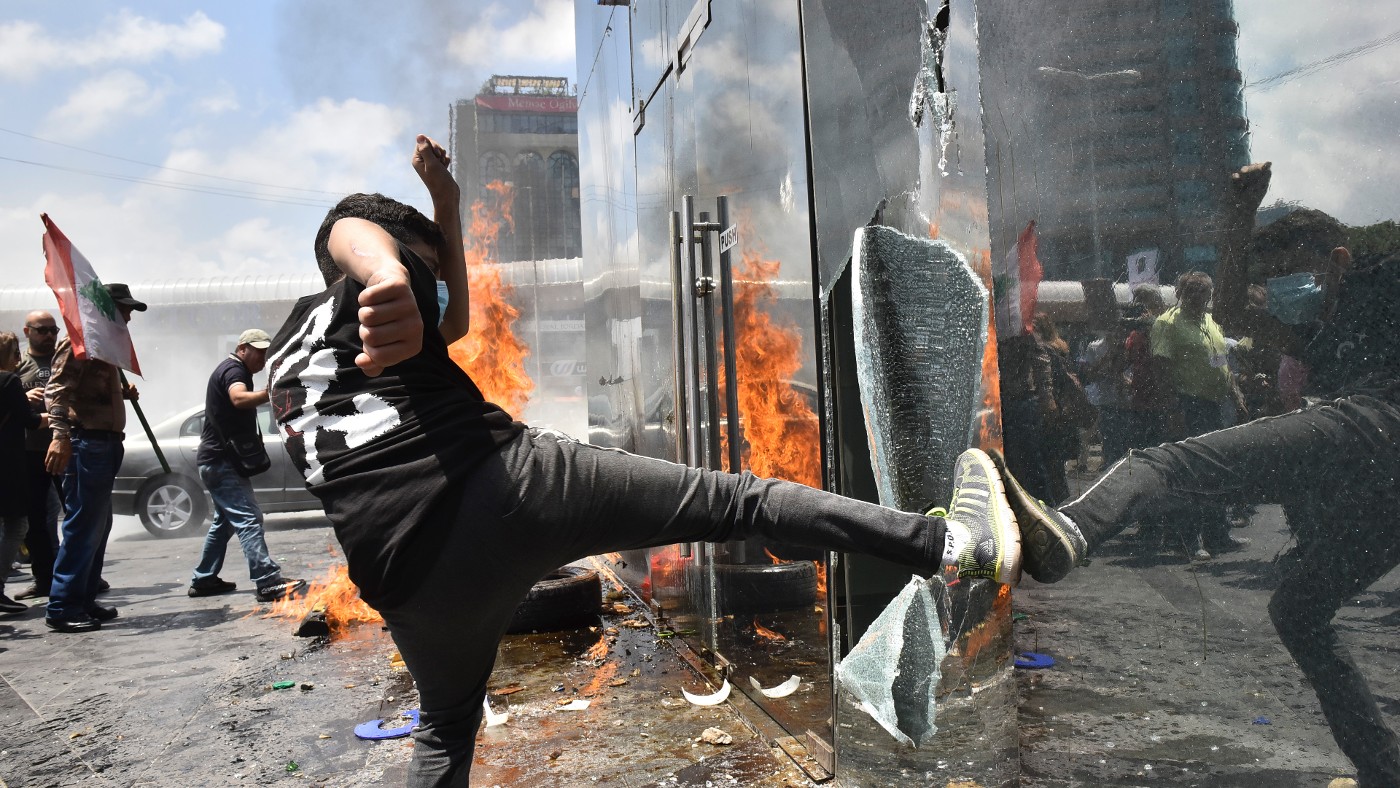Netanyahu brings Israel to a crossroads
The prime minister was ‘forced to pause’ his ‘ambitious plan’ to weaken country’s supreme court

A free daily email with the biggest news stories of the day – and the best features from TheWeek.com
You are now subscribed
Your newsletter sign-up was successful
Has Benjamin Netanyahu finally lost his touch, asked Anshel Pfeffer in Foreign Policy. For 12 weeks now, the great survivor of Israeli politics has fought an escalating battle with protesters.
This week, the prime minister admitted defeat – temporarily, at least. When he returned to power at the head of a hard-right coalition government in December, Netanyahu had immediately launched an ambitious plan to weaken the powers of Israel’s supreme court.
In response, hundreds of thousands of liberal Israelis took to the streets, protesting weekly against what they saw as a naked “power grab” – and an attempt by Netanyahu “to wriggle out of his ongoing trial for alleged bribery and fraud”.
The Week
Escape your echo chamber. Get the facts behind the news, plus analysis from multiple perspectives.

Sign up for The Week's Free Newsletters
From our morning news briefing to a weekly Good News Newsletter, get the best of The Week delivered directly to your inbox.
From our morning news briefing to a weekly Good News Newsletter, get the best of The Week delivered directly to your inbox.
More worryingly, hundreds of reservists announced that they would not report for duty, including fighter pilots and intelligence officers. Citing the threat to national security, Defence Minister Yoav Gallant called for the legislation to be put on hold.
On Sunday, he was fired by Netanyahu. A nationwide strike followed, which shut down swathes of the economy.
‘Legitimate to seek to rein it in’
Ultimately, Israel’s “key institutions” sided with the protesters, and Netanyahu was forced to pause the legislation: he said he’d take “a timeout for dialogue”.
The Right in Israel has had the supreme court in its sights for decades, said Haviv Rettig Gur in The Times of Israel. And it is “legitimate to seek to rein it in”.
A free daily email with the biggest news stories of the day – and the best features from TheWeek.com
While Israeli politics has turned to the right, the court is still dominated by progressives – not least because the justices have a major role in appointing new members of the court.
Israel has no constitution, and the judges have increasingly waded into political matters, striking down laws such as those governing the expansion of Jewish settlements on Palestinian land.
A significant section of the population wants the court reformed. And when this current coalition, not dependent on any centrist or leftist faction, came to power, the Right believed its time had come. But the government drastically overplayed its hand.
There was “no debate, engagement or negotiation”. Protests were dismissed as the griping of the “old elites”.
‘Attempting to politicise the judiciary’
By the time ministers had realised their mistake, “it was too late”. Netanyahu may have retreated, said Haaretz. But the protesters must not “let up the pressure until the legislation is scrapped”.
We should recognise this law for what it is: an attempt to politicise the judiciary and scrap a crucial check on the power of government. It is designed to erode the rule of law and “destroy” Israeli democracy.
This is a dispute about a fundamental issue, said David Friedman in The Jerusalem Post – “what it means to be a Jewish state”.
It reflects the growing power of ultra-Orthodox Israelis, who have become “a major demographic and political force”, controlling about 15% of the Israeli parliament and exerting great influence in coalition negotiations.
Ranged against them is the secular Left, which largely built modern Israel; it no longer commands a majority, but has retained a strong influence through institutions such as the supreme court. Israel is “divided as never before”.
Sensible people are talking openly “about the risks of a civil war”. We must pray that the nation steps back from the brink.
-
 Sepsis ‘breakthrough’: the world’s first targeted treatment?
Sepsis ‘breakthrough’: the world’s first targeted treatment?The Explainer New drug could reverse effects of sepsis, rather than trying to treat infection with antibiotics
-
 James Van Der Beek obituary: fresh-faced Dawson’s Creek star
James Van Der Beek obituary: fresh-faced Dawson’s Creek starIn The Spotlight Van Der Beek fronted one of the most successful teen dramas of the 90s – but his Dawson fame proved a double-edged sword
-
 Is Andrew’s arrest the end for the monarchy?
Is Andrew’s arrest the end for the monarchy?Today's Big Question The King has distanced the royal family from his disgraced brother but critics claim a ‘fit of revolutionary disgust’ could still wipe them out
-
 10 things you need to know today: October 7, 2023
10 things you need to know today: October 7, 2023Daily Briefing Israel 'at war' with Hamas following deadly surprise attack, Chuck Schumer leads bipartisan congressional delegation to China, and more
-
 Earring lost at sea returned to fisherman after 23 years
Earring lost at sea returned to fisherman after 23 yearsfeature Good news stories from the past seven days
-
 Bully XL dogs: should they be banned?
Bully XL dogs: should they be banned?Talking Point Goverment under pressure to prohibit breed blamed for series of fatal attacks
-
 The spiralling global rice crisis
The spiralling global rice crisisfeature India’s decision to ban exports is starting to have a domino effect around the world
-
 Netanyahu’s reforms: an existential threat to Israel?
Netanyahu’s reforms: an existential threat to Israel?feature The nation is divided over controversial move depriving Israel’s supreme court of the right to override government decisions
-
 A country still in crisis: Lebanon three years on from Beirut blast
A country still in crisis: Lebanon three years on from Beirut blastfeature Political, economic and criminal dramas are causing a damaging stalemate in the Middle East nation
-
 Farmer plants 1.2m sunflowers as present for his wife
Farmer plants 1.2m sunflowers as present for his wifefeature Good news stories from the past seven days
-
 Ghana abolishes the death penalty
Ghana abolishes the death penaltyfeature It joins a growing list of African countries which are turning away from capital punishment